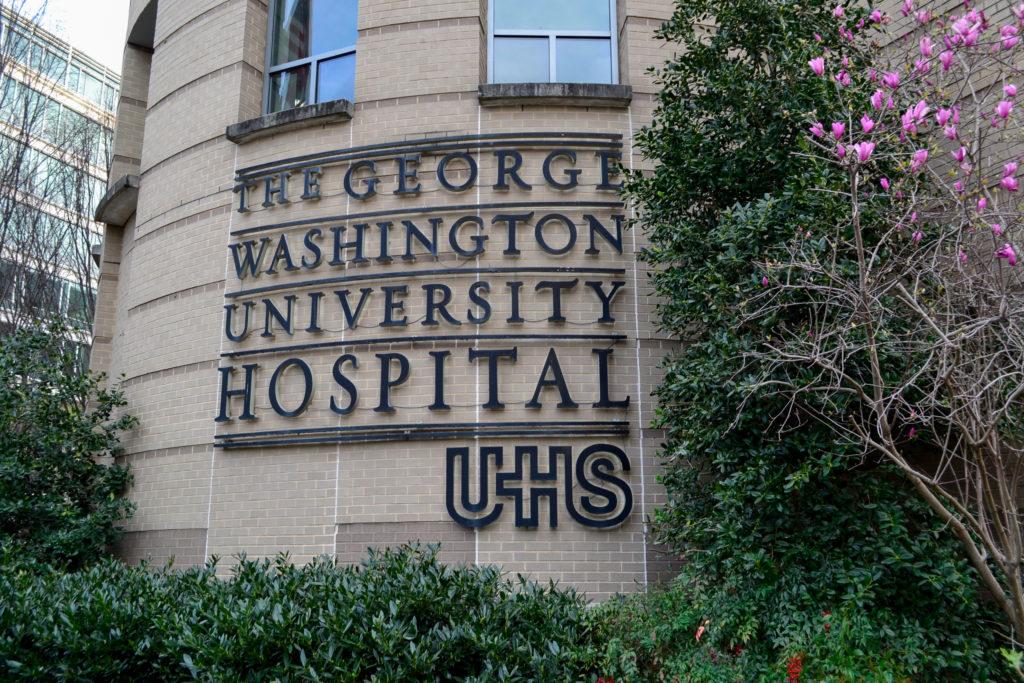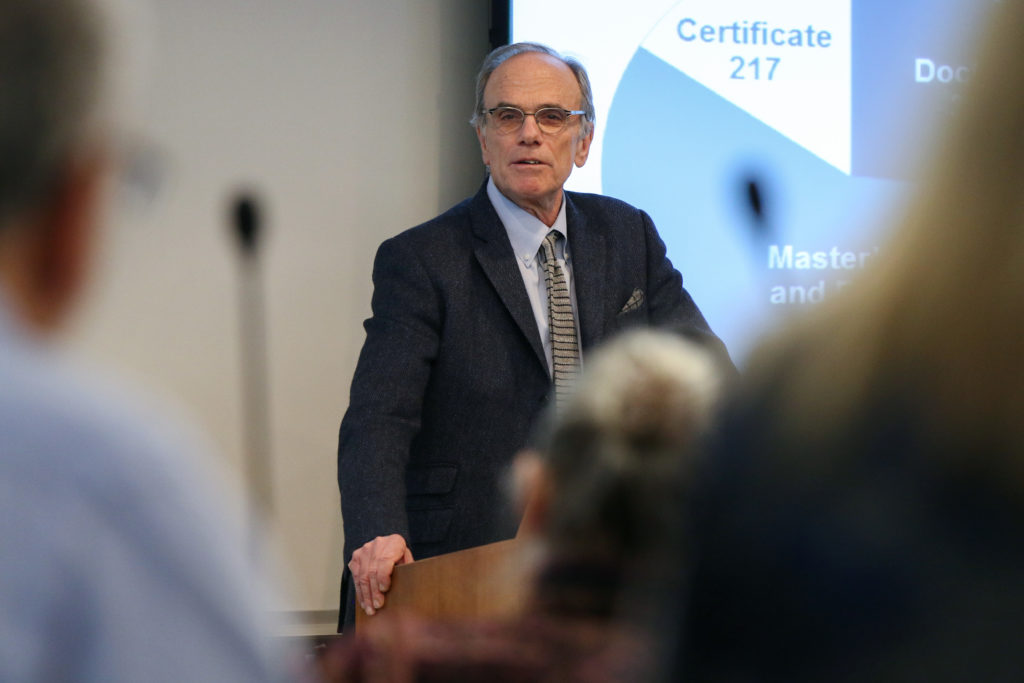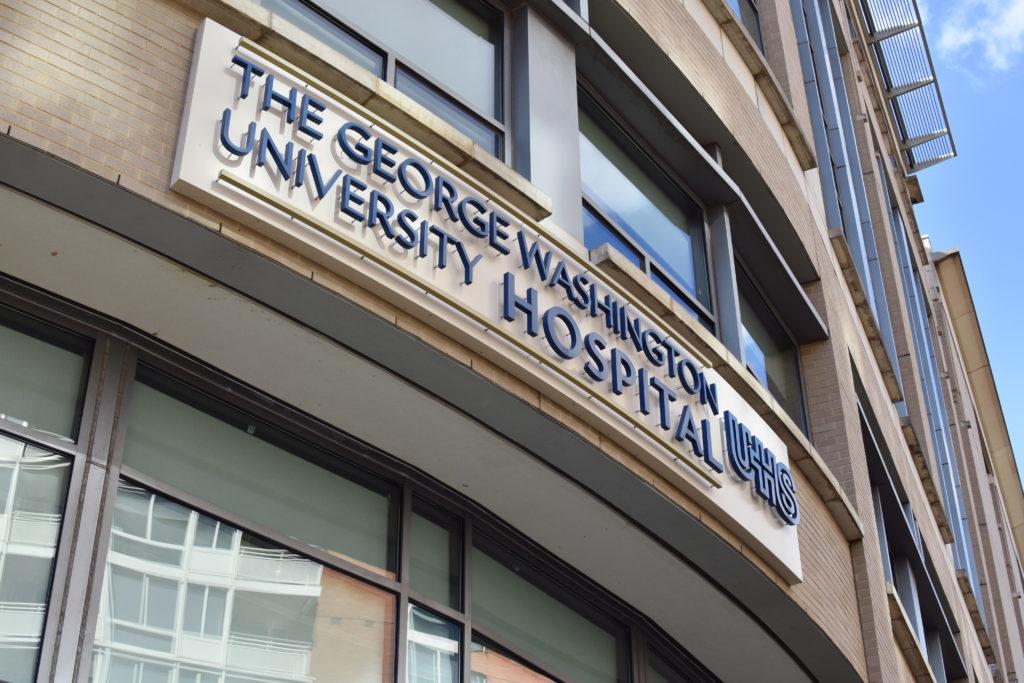Medical residents at the School of Medicine and Health Sciences have filed a petition to form a union and are expected to schedule their upcoming election “by the end of the week,” a union official said Wednesday.
Annie Della Fera, a communications director for the Committee of Interns and Residents – a local of the Service Employees International Union – said that more than 450 GW residents, interns and fellows are expected to schedule a vote to unionize in an effort to better wages and conditions to prevent physician burnout. The finalization of the election agreement follows interns and residents within the school filing election paperwork with the National Labor Relations Board last week.
Della Fera said medical residents and interns are seeking to form a union to improve wages and protect time off for staff to pursue mental health support and other medical care. She said residents and interns earn wages that reportedly fail to cover their living expenses some months in one of the “most expensive” metropolitan areas in the country despite some working more than 80 hours a week.
“They just want an avenue to be able to advocate to the administration so that they’re listened to and that they can actually make changes happen that’ll improve their lives, their working conditions and their ability to care for patients,” Della Fera said.
SMHS residents and unions will join schools across the country that have recently announced plans to form unions, including two Penn Medicine hospitals, Montefiore hospital in New York and Mass General Brigham in Boston.
She said the COVID-19 pandemic caused a “health care crisis” that stretched residents and interns to their limit because they provided the majority of patient care during the period, sparking the unionization effort. Della Fera said during the pandemic, resident physicians faced “trouble” and lacked “leverage” while advocating for improvements to management because they were still undergoing training as medical school students.
Della Fera said mental health is “really important” to residents and interns because of their “intense” workplace environment that leaves little to no time for processing grief. The Centers for Disease Control and Prevention reported that 93 percent of health workers reported being burned out and stretched too thin during the pandemic in 2020.
“It doesn’t really matter that they’re in a training program,” Della Fera said. “A lot of different jobs have training programs, they’re still providing, they’re still working, they’re still workers.”
She said officials first submitted their union petition paperwork for a mail-in election to the NLRB March 3 but withdrew it and then re-submitted the paperwork March 22 to petition for in-person voting.
SMHS Dean Barbara Bass said in an email to SMHS resident physicians earlier this month that the University will follow the processes set forth by the NLRB, including election procedures under which residents and interns can vote to elect a union via secret ballot. She said the medical school believes the decision to vote for union representation is a “personal decision” for each individual.
Bass said the medical school is “grateful” for residents’ contributions to patient health and wellness and that officials remain “committed” to working together with residents to ensure they have a “meaningful and successful” experience at GW.
“Resident physicians are an important part of our GW community,” the statement reads. “We embrace our mission to train the next generation of physicians, ensuring you develop the competencies you will need as independent physicians through our diverse and comprehensive training programs.”
University spokesperson Julia Metjian declined to comment earlier this month on when officials became aware of residents’ intent to form a union and what concerns they have brought forth, deferring to the Bass email.
Maryssa Miller, a first-year internal medicine resident physician, said residents and interns all have their own reasons for forming a union but that many hope to receive “adequate” access to health care and mental health resources and a “livable” salary that prevents “worry” about paying bills every month. She said “most” residents reportedly have upward of $300,000 in student loans, an amount that’s difficult to pay off on the resident salary.
“We want the best resources to be able to serve the D.C. and DMV community, and we realize that in order to best serve our patients, we have to be able to take care of ourselves,” Miller said in an interview earlier this month.
She said residents and interns also want to negotiate for patient-care funds that provide improved resources for patients and better access to childcare or parental leave, as well as allocate more money, time and effort to improving the diversity amongst the medical training residents and fellows.
She said living through a global pandemic brought out many of the health care system’s “inequalities” and “injustices” that made residents and fellows advocate for their training, colleagues and patients. She said GW medical students have been wanting to organize a union since at least 2018.
“It’s been really inspiring to us to see all of these other residency programs, stand up and unionize and basically paved the way for us,” Miller said. “We hope that by us unionizing, we can help pave the way for other programs to step up and fight for what they deserve as well.”











